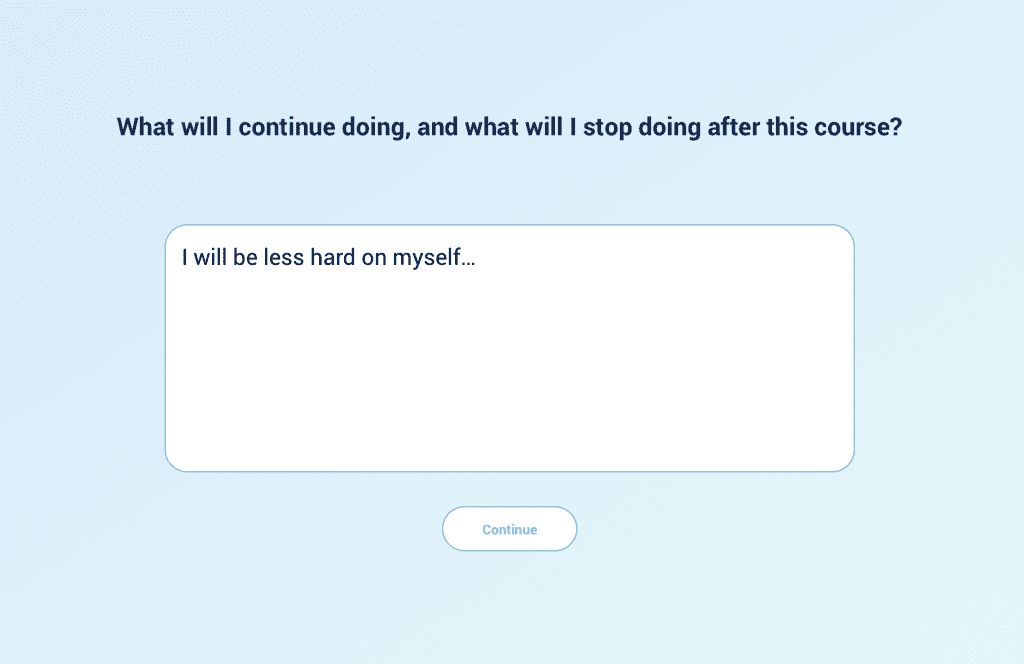Journaling can give you a different perspective on your life, help you learn something from your experiences, and even find the answer you are looking for.
What is a journal for self-reflection, and why should you start writing one now?
Simply put, a journal for self-reflection is where you write down your daily experiences. This doesn’t mean you have to write a litany of everything that happens from the moment your alarm clock goes on until you go to bed at night. Depending on your intention behind the journal, you can write three things you are grateful for, the best and not-so-great things that happened during the day, an issue you haven’t been able to resolve, or highlights of your day.
At CanopyLAB, we have created our self-reflection journal with the necessary prompts to get you started.
At CanopyLAB, we have created our self-reflection journal with the necessary prompts to get you started.

In his book Atomic Habits, James Clear talks about the power behind new beginnings to include new habits in your life. This means that people find it easier to start a new habit at the beginning of a new week, a month, or ( yes, you guessed it) in the new year. Therefore, this is the perfect time to start a new habit, so if you are thinking about your new year’s resolutions, make sure to include journaling in your list, and while we are at it, try to keep this list short and achievable, so you don’t give up when February rolls around.
[…] this is the perfect time to start a new habit, so if you are thinking about your new year’s resolutions, make sure to include journaling in your list
Do you still need convincing? Ok, check out these incredible benefits of journaling:
In this article from Insider, published in early 2022, Carla Marie Manly, Ph.D., a clinical psychologist and wellness expert, explained that journaling has plenty of mental, emotional, and physical benefits, including:
- Reduce stress
- Calm anxiety
- Relieve depression
- Improve memory
- Strengthen your immune system
- Increase optimism
- Help to cope with trauma
Moreover, the University of Rochester Medical Center expands by saying that journaling can help you improve your mood by:
- Helping you prioritize problems, fears, and concerns.
- Tracking any symptoms day-to-day so that you can recognize triggers and learn ways to better control them.
- Providing an opportunity for positive self-talk and identifying negative thoughts and behaviors¹.
As you see, the benefits of journaling can improve your life tremendously in more ways than one. Yet, although people seem to love the idea of journaling, very few start and stick to it long-term; this may have even happened to you, but don’t worry, you are not alone. Even Oprah (who swears by the positive effects of journaling) has had trouble maintaining this habit at different times in her life.
¹Journaling for Mental Health – Health Encyclopedia – University of Rochester Medical Center, accessed on December 14, 2022.



